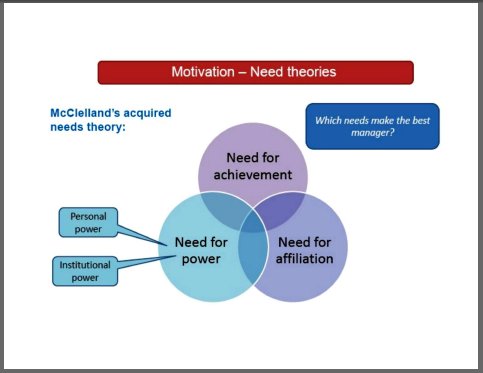According to Rodger Stotz and Bruce Bolger:
Content theories focus on the factors within a person that energize, direct, sustain and stop behavior. They look at the specific needs that motivate people. Content theorists include Abraham Maslow, Clayton P. Alderfer, Federick Herzberg and David C. McClelland. Their theories have been helpful in discussing motivation, but not all have been verified through research.
Process theories provide a description and analysis of how behavior is energized, directed, sustained and stopped. Four process theories are predominant: Reinforcement, expectancy, equity, and goal setting.
CONTENT THEORIES
Maslow's Hierarchy of Needs states that people are motivated to achieve certain needs. When one need is fulfilled, a person seeks to fulfill the next one, and so on.

Herzber's motivation-hygiene theory (also known as the two-factor or dual-factory theory) states that there are certain factors in the workplace that cause job satisfaction, while a separate set of factors causes dissatisfaction.

Acquired Needs Theory proposes that a person's life changes individual needs over time.

PROCESS THEORIES


No comments:
Post a Comment